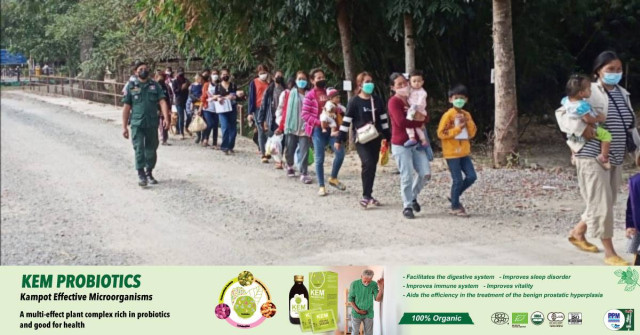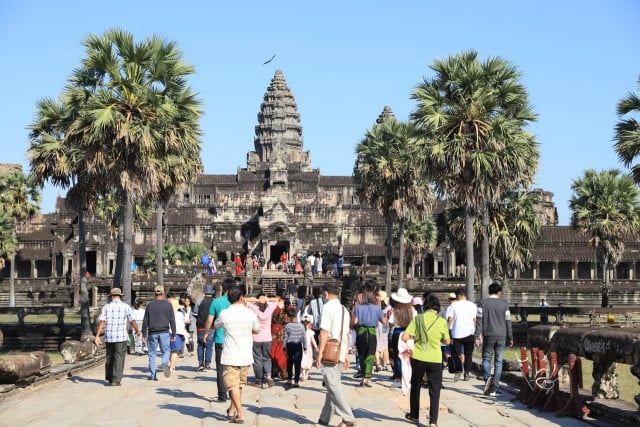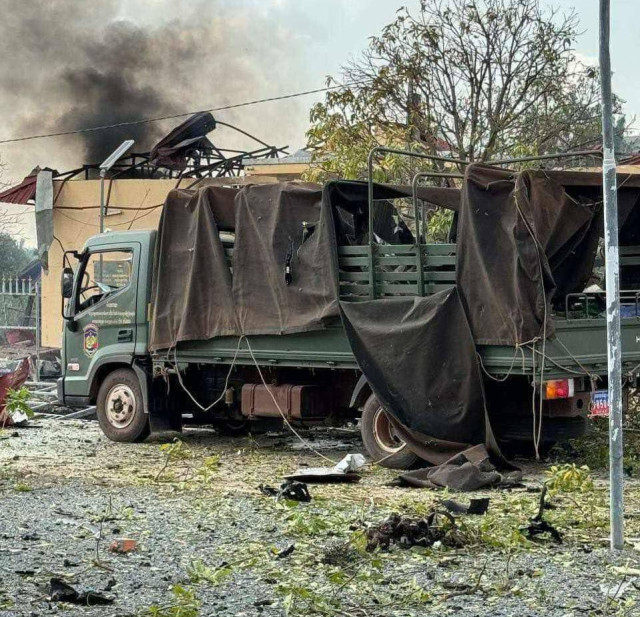CENTRAL Calls For Migrant Workers’ Protection

- By Lay Sopheavotey
- December 20, 2023 7:29 PM
PHNOM PENH – Rights group CENTRAL has urged the government to review and set fixed prices for migrant workers’ complaints procedures and documentation.
The Center for Alliance of Labor and Human Rights call was issued on Dec. 18, the 24th anniversary of International Migrants Day.
It was the third time that CENTRAL had used the anniversary to spread awareness of challenges faced by migrant workers.
The organization’s migrant safety consultants visited 16 locations in Kampong Thom, Siem Reap, Preah Vihear, Banteay Meanchey, Battambang, and Pursat provinces. About 20,000 people took part to exchange views.
They identified three challenges for migrant workers after interviews in target provinces. The first was travel expenses. Most workers could not migrate through memorandums of understanding procedures because they take a long time with complicated procedures and at high cost.
This caused people to depend more on brokers or relatives rather than employment agencies for migrant work, CENTRAL said.
The second challenge was the limitation in reporting and filing complaints.
“Some workers faced work exploitation without payment, or were fired without prior notice by their employers,” CENTRAL said.
“They were spoken to in an inappropriate language, forced to do overtime work without payment or consent, and subjected to confiscation of workers' documents.
“Most workers were unaware of their rights to protest or seek intervention because of their nationality or migration status,” it added.
Lastly, social protection had yet to cover former migrant workers. In Thailand, for example, migrant workers and their family members are not fully protected.
“The Labor Law and social protection law in destination countries do not fully include migrant workers in all sectors such as social benefits and protection due to nationalities, discrimination, migration situation, and employment sector,” CENTRAL said.
Migrant workers returning to the origin country could not register for the ID-Poor card because they had migrated for a long time, lost their names in residence documents, lacked documents for registration and information, and because of abnormal situations in local administrations in providing ID-Poor cards.
CENTRAL called on the government, particularly the Ministry of Labour and Vocational Training, to review regulations or make policies and monitor them.
The government should set a price and time limits for working on documents, including passports, Overseas Cambodian Worker Cards, health checks, visa fees and job applications overseas.
As for extending social protection, the government must guarantee that Cambodian migrant workers abroad get information and are made aware of the social protection they have.
The organization urged the government to provide ID-Poor or priority cards for migrant workers or former migrant workers and their families.
CENTRAL also asked the government to organize a mechanism for intervention and complaints and to guarantee that there will be a contact list of stakeholders at workplace, embassies, or consulate posted at all factories and enterprises.
The government and stakeholders should cooperate with the local authorities in destination countries to resolve complaints and provide suitable solutions, including out-of-court disputes, for the workers.
At the same time, the government needs to accelerate procedures in court effectively, ensuring that the workers get justice or compensation.
In response, Orn Katta, spokesperson for the Ministry of Labour and Vocational Training, said the ministry “has always taken requests from unionists, civil society organizations, or associations into consideration, aiming to improve the efficiency and benefits for the workers”.
“I would like to call on unionists, civil society organizations, associations that work related to workers' rights to change from working inefficiently to working on the right targets, and cooperate with the ministry for their benefits,” he said.
The ministry would welcome real complaints with clear reasons and victims to discuss and seek resolutions rather than write only reports without any solutions for the workers.
Originally written in Khmer for ThmeyThmey, this story was translated by Meng Seavmey for Cambodianess.















